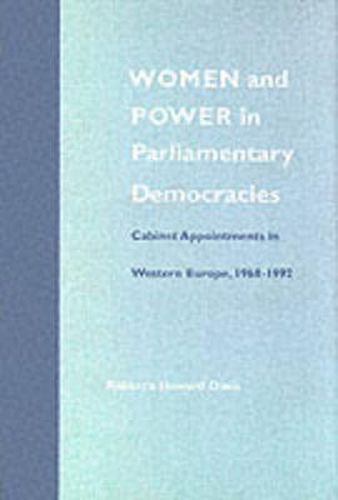Readings Newsletter
Become a Readings Member to make your shopping experience even easier.
Sign in or sign up for free!
You’re not far away from qualifying for FREE standard shipping within Australia
You’ve qualified for FREE standard shipping within Australia
The cart is loading…






Margaret Thatcher, Mary Robinson, Gro Harlem Brundtland, Edith Cresson, and Simone Veil-these contemporary world leaders are as noteworthy for their gender as they are for the political directions they have provided. Indeed, female government leaders are so rare as to be almost an intellectual curiosity. Why is this the case? Why do women, who make up more than half of the world’s population, occupy so few positions at the highest levels of political power? Why are women making inroads in government in some countries while not in others? And what difference does women’s presence-or absence-make in terms of policy outcomes? Davis addresses these questions by examining women’s access to power through appointive channels in Western European parliamentary and parliamentary-type systems. Tracing women’s participation from 1968 to 1992 in fifteen countries, she accounts for the variation from high levels of women’s representation in Norway and Sweden to low levels in Italy and Britain. Little research on women and elections extends beyond the United States and Britain. Even less exists on women’s access to power through appointive channels. By comparatively examining the elite recruitment of women through appointments, this work fills a critical gap.
$9.00 standard shipping within Australia
FREE standard shipping within Australia for orders over $100.00
Express & International shipping calculated at checkout
Margaret Thatcher, Mary Robinson, Gro Harlem Brundtland, Edith Cresson, and Simone Veil-these contemporary world leaders are as noteworthy for their gender as they are for the political directions they have provided. Indeed, female government leaders are so rare as to be almost an intellectual curiosity. Why is this the case? Why do women, who make up more than half of the world’s population, occupy so few positions at the highest levels of political power? Why are women making inroads in government in some countries while not in others? And what difference does women’s presence-or absence-make in terms of policy outcomes? Davis addresses these questions by examining women’s access to power through appointive channels in Western European parliamentary and parliamentary-type systems. Tracing women’s participation from 1968 to 1992 in fifteen countries, she accounts for the variation from high levels of women’s representation in Norway and Sweden to low levels in Italy and Britain. Little research on women and elections extends beyond the United States and Britain. Even less exists on women’s access to power through appointive channels. By comparatively examining the elite recruitment of women through appointments, this work fills a critical gap.